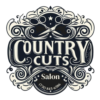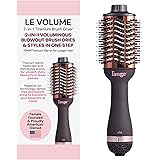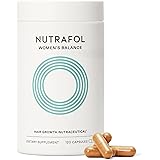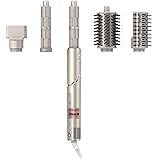Introduction to Scalp Care
Scalp care is an integral aspect of personal grooming that is often neglected. While many individuals focus on the appearance and health of their hair, the condition of the scalp plays a critical role in overall hair health. The scalp, much like the skin on the face, requires attention and care to maintain its physiological balance. A healthy scalp provides the ideal environment for hair growth, whereas an unhealthy scalp can lead to various issues, including hair thinning, dandruff, and even scalp diseases.
The relationship between the scalp and hair is closely linked. The scalp houses hair follicles, which are crucial for hair development. If the scalp is not properly cared for, these follicles can become clogged with dirt, oil, and dead skin cells, leading to insufficient nutrition for the hair strands. Consequently, incorporating scalp treatments into one’s beauty regimen can significantly enhance not only scalp health but also the aesthetic quality of the hair itself.
Many people overlook scalp treatments due to a lack of awareness regarding their significance. Often, hair care products focus solely on the strands without addressing the foundation from which the hair grows. Acknowledging the importance of scalp care can lead to improved hair vitality, with benefits such as increased shine, reduced breakage, and healthier growth patterns. Additionally, scalp treatments can alleviate common issues like itchiness and flakiness, resulting in overall comfort.
In light of these considerations, it is evident that embracing an effective scalp care routine is pivotal in unlocking the secrets to achieving and maintaining healthy hair. By prioritizing scalp treatments, individuals can foster a more holistic approach to personal grooming and enhance their overall hair care practices.
Understanding the Scalp: Anatomy and Function
The scalp is a complex structure that plays a crucial role in maintaining healthy hair and overall hair health. Anatomically, the scalp comprises several layers of tissue, including the epidermis, dermis, and subcutaneous tissue. The epidermis serves as the outer barrier, protecting against environmental factors, while the dermis contains essential components such as blood vessels, hair follicles, and sebaceous glands. These elements work together to maintain the well-being of the scalp and the hair that grows from it.
One of the primary functions of the scalp is the production of sebum, an oily substance secreted by sebaceous glands. Sebum acts as a natural conditioner, providing moisture and protecting hair from damage. If the scalp is healthy, it produces an adequate amount of sebum to keep the hair hydrated. However, an imbalance in oil production can lead to conditions like dry scalp or excessively oily scalp, which can hinder hair’s ability to grow optimally.
Another important function of the scalp is its role in blood circulation. The blood vessels present in the dermis supply vital nutrients and oxygen to the hair follicles, supporting their growth and vitality. Good circulation is essential for nurturing the follicles and contributes to the overall health of the hair. Additionally, the scalp’s skin type can vary from person to person, influencing factors such as oil production and susceptibility to conditions like dandruff or inflammation.
Hair follicles themselves are embedded within the scalp’s layers and are responsible for hair growth. Each follicle is linked to a sebaceous gland, contributing to the essential balance of oil and moisture necessary for hair health. Understanding the anatomy and functions of the scalp underscores the importance of scalp treatments in promoting healthy hair growth and maintaining overall scalp health. Such interventions can help address imbalances, stimulate blood circulation, and enhance the vitality of hair follicles.
Common Scalp Issues and Their Impact
Maintaining a healthy scalp is crucial for achieving vibrant hair, yet many individuals experience a range of common scalp issues that can significantly affect both the scalp’s health and hair quality. One prevalent condition is dandruff, characterized by flaking skin, itching, and sometimes irritation. Dandruff can result from various factors, including dry skin, sensitivity to hair products, or fungal infections. When not addressed, it may lead to inflammation and contribute to hair thinning over time.
Another issue that often plagues individuals is dryness. A dry scalp can result from environmental factors like low humidity, excessive washing, or the use of harsh hair products. This condition leaves the scalp uncomfortable and may exacerbate other concerns such as flakiness and itchiness. A lack of proper hydration not only affects scalp health but can also contribute to brittle and weak hair, increasing the likelihood of hair loss.
In contrast, some individuals may experience an excessively oily scalp. Overproduction of sebum can lead to a greasy appearance, clogged hair follicles, and an unhealthy environment for hair growth. Conditions such as seborrheic dermatitis may also arise, characterized by red and oily patches that can make hair appear unkempt and lead to hair shedding if not treated appropriately.
Itchiness is another common scalp concern that can stem from several causes, including allergies, dry skin, or scalp infections. Persistent itching can lead to scratching, which damages the hair follicles and results in hair loss. Affected individuals may find that their overall hair quality declines as they struggle to manage these symptoms.
Addressing these common scalp issues through specific treatments is essential for upholding scalp health and promoting strong, resilient hair. Neglecting the scalp can lead to ongoing problems that impact hair growth, thus emphasizing the need for effective scalp care routines tailored to individual needs.
The Benefits of Regular Scalp Treatments
Regular scalp treatments offer a multitude of benefits that significantly contribute to the overall health of hair. One of the primary advantages is improved blood circulation. When the scalp is treated, whether through massages or the application of specialized products, it stimulates blood flow to the hair follicles. This enhanced circulation facilitates nutrient delivery, promoting healthier hair growth and stronger strands.
Additionally, scalp treatments are effective in reducing dandruff. Many individuals struggle with dry, flaky skin on the scalp, which can lead to embarrassment and discomfort. Regular treatment helps to exfoliate the scalp, removing dead skin cells and excess oil, thereby alleviating dandruff symptoms. A clean scalp environment is crucial for the well-being of hair follicles, as it minimizes the risk of blockage and allows for proper hair growth.
Moreover, these treatments can enhance hair growth. Specific formulations containing vitamins, minerals, and botanicals nurture the hair and encourage the follicles to produce new growth. By regularly stimulating the scalp, individuals may notice not only increased hair density but also improved overall hair texture. Healthy hair emerges from a well-cared-for scalp, making these treatments vital for anyone seeking to boost their hair’s vitality.
Furthermore, regular scalp treatments contribute to improved overall scalp health. They can help soothe irritation, maintain proper moisture levels, and ensure a balanced pH. A healthy scalp ultimately translates to a radiant mane and a confident appearance. Incorporating scalp treatments into a hair care routine is a proactive step towards achieving luscious hair. Therefore, recognizing the importance of these treatments can lead to lasting beauty benefits, ensuring that hair remains vibrant and healthy.
Types of Scalp Treatments
Scalp treatments have become an essential element in hair care, catering to various scalp conditions and promoting overall hair health. Among the most popular forms are exfoliating scrubs, nourishing oils, masks, and specialized shampoos. Each type serves distinct purposes and is tailored to address specific needs.
Exfoliating scrubs are designed to remove dead skin cells, excess oil, and product buildup from the scalp. This treatment is especially beneficial for individuals dealing with dandruff or a flaky scalp. By utilizing natural ingredients such as sea salt or sugar, these scrubs enhance blood circulation, leading to a healthier scalp environment that fosters hair growth. They are generally recommended for those with oily or combination scalp types, as gentle exfoliation can help maintain balance.
Nourishing oils, such as tea tree, coconut, or argan oil, are notable for their hydrating and soothing properties. They not only provide moisture to dry scalps but also possess antibacterial and anti-inflammatory benefits. This makes them particularly effective for conditions like psoriasis or seborrheic dermatitis. Users can apply these oils directly to the scalp or mix them with other treatment products, ensuring comprehensive nourishment.
Scalp masks provide an intensive treatment that combines the benefits of both oils and hydrating ingredients. These masks often contain nourishing components like aloe vera and essential vitamins, targeting issues such as itchiness, dehydration, and irritation. They are suitable for all scalp types and can be left on for extended periods to achieve maximum effectiveness.
Specialized shampoos feature formulations aimed at treating particular scalp conditions, such as dandruff or hair thinning. Ingredients like ketoconazole or salicylic acid can target fungal infections or reduce inflammation. Choosing the right shampoo is vital, as it can directly influence the overall health of both the scalp and hair. Each of these treatment types plays a crucial role in restoring and maintaining a healthy scalp, offering preventive care and remedial solutions tailored to individual needs.
Natural Remedies for Scalp Care
Maintaining a healthy scalp is essential for promoting hair vitality and preventing issues such as dandruff, itchiness, and excessive oiliness. Natural remedies have gained popularity due to their effectiveness and gentle nature. Among these, tea tree oil, aloe vera, and coconut oil stand out as remarkable options for scalp care.
Tea tree oil is known for its antimicrobial properties, which help combat fungal and bacterial infections that may irritate the scalp. This essential oil works by unclogging hair follicles, thus supporting a balanced scalp environment. To apply tea tree oil, mix a few drops with a carrier oil, such as jojoba or almond oil, and gently massage it into the scalp. Allow it to sit for about 30 minutes before rinsing it out. Regular application can lead to a healthier, more comfortable scalp.
Aloe vera is another powerhouse when it comes to scalp care. Renowned for its soothing properties, aloe vera can help with inflammation and dryness. Its gel-like consistency provides hydration and nourishment, promoting a clearer and healthier scalp. To utilize aloe vera, simply extract the gel from a fresh leaf and apply it directly to the scalp. Leave it on for approximately 30 minutes for optimal results, then rinse out. Incorporating aloe vera into one’s routine can enhance both scalp health and hair moisture.
Coconut oil is celebrated for its deep-conditioning benefits and ability to penetrate the hair shaft. This natural oil not only hydrates the scalp but also helps minimize protein loss in hair, thus promoting overall strength. To use coconut oil, warm it slightly and massage it into the scalp, ensuring that it reaches the roots. Leaving it on overnight allows the oil to absorb effectively, resulting in improved scalp health and softness in hair. By utilizing these natural remedies, individuals can unlock the potential for a nourished and balanced scalp, essential for healthy hair growth.
Professional Scalp Treatments: When to Seek Help
Maintaining a healthy scalp is paramount to achieving vibrant hair. While over-the-counter treatments and home remedies can alleviate minor issues, there are specific circumstances when seeking professional scalp treatments becomes essential. Recognizing the signs that indicate a more serious condition can make all the difference in preventing further hair and scalp complications.
If you experience persistent itching, flaking, or redness on the scalp that does not improve with home care, it is advisable to consult a dermatologist. Such symptoms may point to conditions like psoriasis, seborrheic dermatitis, or fungal infections, which require professional diagnosis and tailored interventions. Moreover, if you notice unusual hair loss that exceeds typical shedding, it may signal an underlying scalp issue requiring specialized attention.
Professional scalp treatments, such as scalp facials or therapeutic interventions, are designed to address diverse concerns, ranging from dryness and oiliness to inflammation and irritation. During a typical session, a dermatologist or licensed specialist will perform a thorough assessment of your scalp’s health, enabling them to customize a treatment plan that targets your specific needs. This holistic approach often incorporates advanced techniques including exfoliation, deep cleansing, and the application of nutrient-rich serums.
Furthermore, treatments may involve advanced modalities like laser therapy or microdermabrasion, which can enhance scalp circulation and promote hair growth. For individuals experiencing systemic issues affecting their scalp health, such as hormonal imbalances or autoimmune conditions, dermatologists can provide integrated care options.
In conclusion, timely intervention through professional scalp treatments can address serious conditions and promote healthier hair growth. If you recognize any troubling signs on your scalp, do not hesitate to seek professional evaluation to achieve the optimal results for your hair and scalp health.
Creating a Personalized Scalp Care Routine
Establishing a personalized scalp care routine is essential for promoting optimal scalp health and, consequently, achieving healthy hair growth. To begin, it is crucial to assess your individual scalp type and any specific concerns you may have, such as dryness, oiliness, dandruff, or sensitivity. This assessment will guide the selection of appropriate products and treatments.
When determining the frequency of treatments, consider your scalp condition. For instance, individuals with oily scalps may benefit from cleansing treatments two to three times a week to remove excess sebum, while those with dry or sensitive scalps might find that weekly treatments suffice. Overwashing can exacerbate scalp issues, so aim for a balance that suits your needs. Additionally, incorporating a weekly exfoliating scalp scrub can aid in removing dead skin cells and promoting circulation.
Product selection is another critical aspect. Choose shampoos and conditioners that are sulfate-free and formulated with natural ingredients, as these will be gentler on the scalp. If you are experiencing specific concerns, such as dandruff, look for products containing active ingredients like salicylic acid or ketoconazole that target these issues. Scalp serums and oils can also be introduced into your routine to provide nourishment and hydration.
Lastly, lifestyle habits play a pivotal role in supporting scalp health. Maintain a balanced diet rich in vitamins and minerals, as nutrition significantly impacts hair and scalp condition. Moreover, managing stress through practices such as yoga or meditation can positively influence scalp health by reducing the occurrence of stress-related issues like inflammation. By tailoring your scalp care routine with these considerations in mind, you can unlock the potential for healthier hair and a more vibrant scalp.
Conclusion: The Path to a Healthy Scalp and Hair
Maintaining a healthy scalp is fundamental to achieving beautiful and vibrant hair. The significance of scalp treatments cannot be overstated, as they serve to address various issues that may hinder optimal hair growth and health. By incorporating scalp care into one’s hair care routine, individuals can cultivate a balanced environment that supports the hair follicles and strengthens the hair’s foundation.
Scalp treatments come in various forms, including exfoliating scrubs, nourishing oils, and therapeutic masks, each designed to target specific concerns such as dryness, buildup, and dandruff. When these treatments are utilized regularly, they can enhance blood circulation in the scalp, promoting hair growth and overall scalp health. This, in turn, can lead to thicker, shinier, and more manageable hair.
Moreover, prioritizing scalp care not only nurtures the hair but also contributes to well-being. A healthy scalp can reduce instances of irritation and discomfort, allowing individuals to feel more confident in their appearance. To maximize the benefits of scalp treatments, it is essential to choose products that are tailored to individual hair types and concerns. Understanding one’s specific needs will facilitate informed choices, ensuring the chosen treatment effectively nourishes the scalp.
In conclusion, the pathway to healthy hair is intrinsically linked to the care and attention given to the scalp. By embracing scalp treatments as a vital component of hair care, individuals can unlock the secrets to lush and radiant locks. Adopting consistent scalp care practices will lead to not only stunning hair but also a positive influence on one’s self-esteem and overall health. Prioritize your scalp today for the hair you desire tomorrow.






